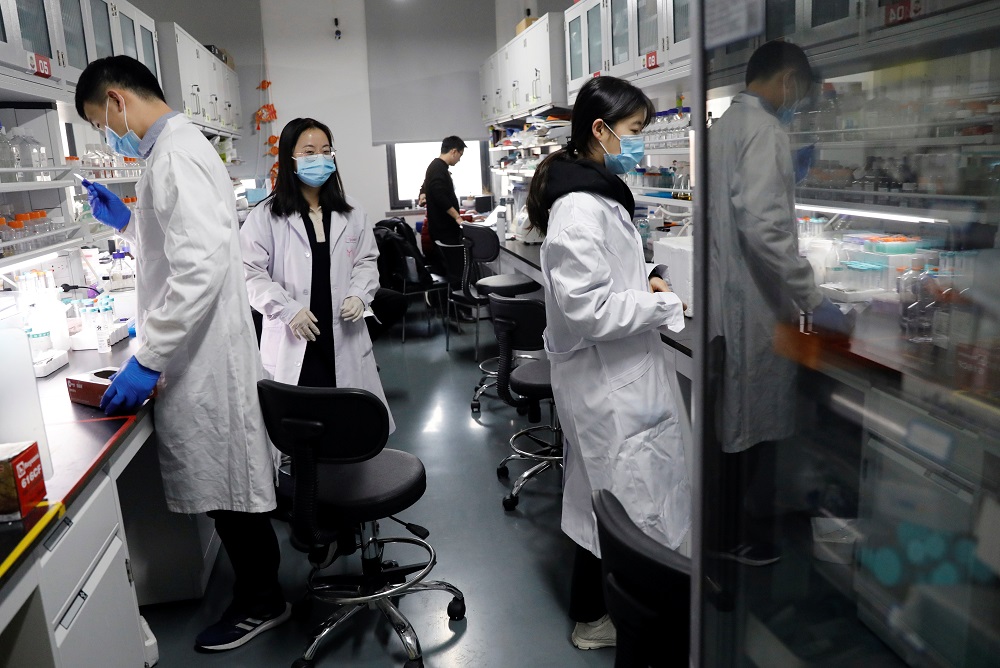Welcome to Our Research Archive
Search and filter by content type, issue area, author, and keyword
- ✕ Clear Filter
- AI (1)
- Article (4)
- Articles (1014)
- book (1)
- Climate (244)
- climate change (1)
- commentary (1)
- data dashboard (14)
- electricity (3)
- energy (252)
- Events (25)
- op-ed (3)
- Podcast (3)
- Post (2)
- Puerto Rico (1)
- Report (2)
- Reports (18)
- science (84)
- science funding (10)
- science trust (10)
- technology (603)
- testimony (1)
- Working paper (1)

January 7, 2026
Choosing Product Space: Lessons from the App Economy
Abstract Firms often choose with whom to compete and how similar or how different their products should be relative to those of their rivals. This paper investigates this issue in the app economy by studying the determinants of mobile app success. We leverage natural language processing and unsupervised machine learning to cluster apps using pairwise…

January 7, 2026
The Data Displaying AI’s Impact on the Telecom World
Artificial intelligence is currently the shiny toy in tech, and when discussing it, most focus on the “AI stack,” data centers, or chips as the most vital aspect of furthering this innovative tool. Yet there is an invisible network that helps power this emerging technology and is just as vital to sustaining it; digital networks…

January 6, 2026
Cell Phones Are Not Like Other Possessions
Keep an eye on a recent case filed by the Pacific Legal Foundation (PLF). It may broaden recognition of something the Supreme Court has found: Cell phones are no ordinary possession. When you are carrying a cell phone around, you are carrying private and personal information comparable to what is contained in your house. When…

December 29, 2025
The Culture War Comes for Science
Almost immediately after President Trump returned to office, he moved aggressively to remake the federal science agencies, exerting tremendous pressure on the entire research enterprise in the process. The Trump administration has frozen federal research grants, slashed overhead costs, and laid off thousands of employees at “Democrat Agencies” (Trump’s phrase) like the Centers for Disease…

December 24, 2025
How AI Is Shifting the Telecom Landscape (with Roger Entner)
As the increased use of artificial intelligence necessitates connectivity, it will continue to become inextricably linked to the digital network landscape. When people talk about artificial intelligence, they usually focus on algorithms, chips, or data centers. But there’s a less visible piece that determines whether any of it works in the real world: digital networks….

December 23, 2025
Public School Students’ Online, Off-Campus Speech Rights: Lessons from a First Amendment Victory, Part 2
The US Court of Appeals for the Second Circuit in October delivered a significant triumph for the online speech rights of public high school students over educators’ authority to discipline them for uploading—while off campus, on their own time—offensive messages not targeting a school, its employees, or students. Leroy v. Livingston Manor Central School District…

December 22, 2025
AI Chatbots Are Reshaping Political Persuasion
As large language models (LLMs) increasingly replace traditional search engines as tools for information gathering, the use of AI in the political arena—and its impact on elections—is inevitable. Recent research published in Nature and Science suggests that AI chatbots are not merely passive sources of election information; they can actively shape voter attitudes in measurable…

December 22, 2025
Public School Students’ Online, Off-Campus Speech Rights: Lessons from a First Amendment Victory, Part 1
A federal appellate court recently delivered a remarkable win for the online, off-campus First Amendment speech rights of public high school students, even when posting social media content that most people would reasonably—even easily—deem racist. Importantly, the US Court of Appeals for the Second Circuit’s ruling in Leroy v. Livingston Manor Central School District offers…

December 19, 2025
2025 Tech Year in Review
As 2025 comes to a close, we’re taking the time to look back and analyze some of the most notable developments in tech policy. The following represents the technology and innovation team’s year in review. 2025 marked the transition from AI as a conversational novelty to Agentic AI as an emerging capability and potential economic…

December 19, 2025
How Antitrust Enforcers Helped Kill an American Innovator
Recently, iRobot—the Massachusetts-based company that pioneered the robot vacuum—announced that it is filing for Chapter 11 bankruptcy. Soon, it will be acquired by its Chinese manufacturer and lender, Picea Robotics. A once-iconic American technology company is becoming fully Chinese-owned. This outcome was not accidental. It is the predictable result of ill-conceived antitrust intervention by US…